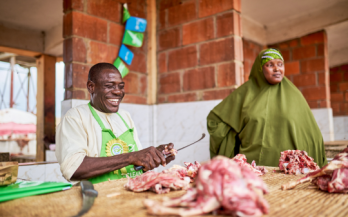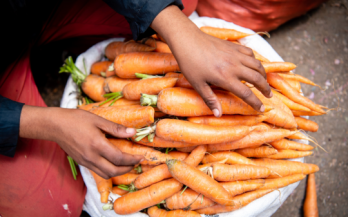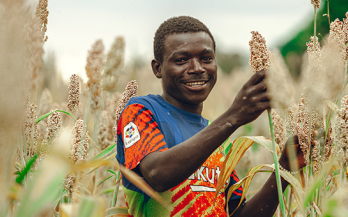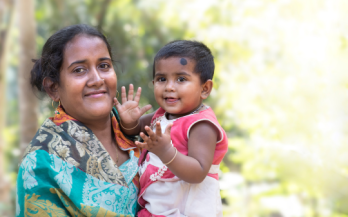
Increasing Food Safety in Traditional Markets
- 30/04/2024
EatSafe: Evidence and Action Towards Safe, Nutritious Food (EatSafe) is a USAID Feed the Future programme that works in traditional markets in Nigeria and Ethiopia to improve food safety.
- 30/04/2024
EatSafe: Evidence and Action Towards Safe, Nutritious Food (EatSafe) is a USAID Feed the Future programme that works in traditional markets in Nigeria and Ethiopia to improve food safety.

, Global
International Youth Day is celebrated annually on 12 August to bring youth issues to the attention of the international community and celebrate the potential of youth as partners in today’s global society.


- 29/05/2024
Overreliance on a few main crops, as well as poor soil health, reduce yields, hinder achievement of food security and nutrition objectives, and increase agricultural vulnerability to climate change. To address this, the Vision for Adapted Crops and Soils (VACS), launched by the United States in partnership with FAO and the African Union, and as part of the whole-of-government Feed the Future initiative, seeks to support soil health as well as breeding of traditional and indigenous crops in Africa.
- 29/05/2024
Foodborne disease is a major global health challenge, causing millions of illnesses every year – mostly in low- and middle-income countries – and hindering achievement of other global goals, such as improved nutrition. Since contamination of food can happen at any point ‘from farm to fork’, reducing the burden of foodborne illness requires a whole-of-food-system approach: one that considers all actors and activities that play a role in production, processing, distribution, preparation, and consumption of food. The objective of this paper is to discuss how to enact such a food system approach to food safety, with a focus on LMICs.
, Global
Join an insightful discussion on the fascinating and multifaceted topic of women’s identities in food culture. Historically, women have been primarily associated with the domestic sphere, responsible for cooking, nurturing and sustaining their families through food. However, as societies have evolved, so too have their roles and expectations placed on women within the realm of food.
, Global
Preparing for the Paris Nutrition for Growth Summit 2025 now, WNA plans to initiate a series of Lighthouse webinars, beginning with "Google and Healthy Food at Work," coinciding with Sustainable Gastronomy Day on June 18th.